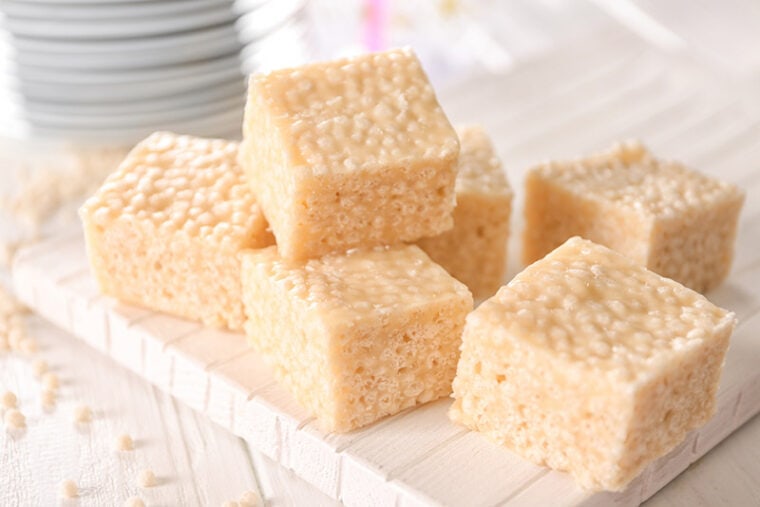
Rice Krispies cereal is a delicious breakfast option for people, but can cats eat it? Since it’s meant for human consumption, it’s not the best food choice for your feline. Rice Krispies are not toxic to cats but they could still result in an upset stomach.
If you like eating Rice Krispies, you know that they are sweet, which suggests that they contain sugar. Also, they don’t contain the nutrients that your cat needs for good health and proper development.
Read on to learn what a cat’s diet should consist of, the ingredients and nutrients of Rice Krispies cereal, and if it’s beneficial and safe for your cat.

What Should a Healthy Cat Diet Look Like?
All cats are obligate carnivores, so they need nutrients from animal products with high amounts of protein. Animal protein is an essential nutrient for proper feline development and health.
Cats should consume moderate amounts of fat and minimal carbohydrates. They also need plenty of minerals and vitamins in their diet to be healthy.
So, is Rice Krispies cereal the ideal snack for your feline? No, they are not. Like with most products for humans, its ingredients and proportion of nutrients are not adapted for animals. It does not have enough useful nutrients to be a valuable addition to a cat’s diet.
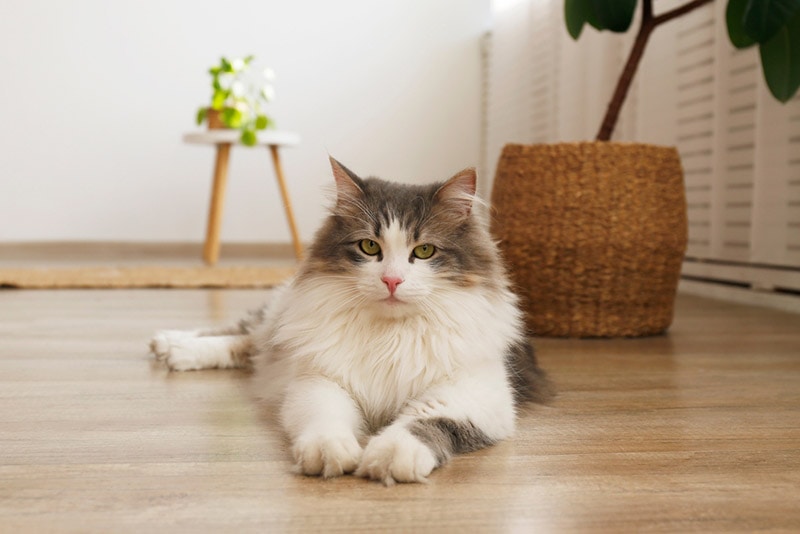
The Ingredients of Rice Krispies
The main ingredients of Rice Krispies are:
Rice
Rice is a natural ingredient and non-toxic for cats, which is why many cat parents may feel like it’s a safe food choice. However, rice mostly contains high carbohydrate levels and is low in fats, fiber, and protein.
So, while not entirely bad for cats, and often used in commercial cat foods, rice shouldn’t form a large part of your cat’s diet. Cats need several essential nutrients such as taurine that they can only get from animal sources.
Sugar
Sugar does not form a natural part of a cat’s diet and you should avoid giving any kind of sugared food to your cat.
First, cats don’t need sugar in their diets and they don’t even have taste receptors for sweetness. Second, sugar contains absolutely no nutrients besides carbohydrates, which are not healthy for your feline.
Finally, ingesting high amounts of sugar could lead to obesity due to extra calories and then to diabetes in your cat. Due to the risk of weight gain, it’s best to avoid giving anything sugary to your furry friend.
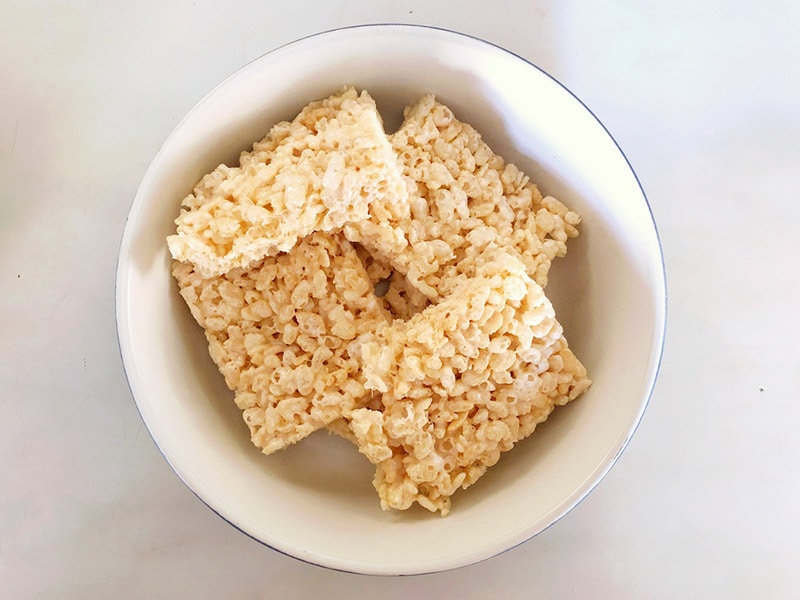
Salt
Excess salt is potentially toxic to felines, so any product that contains salt should be avoided when it comes to your feline’s diet. Consuming too much salt could lead to salt toxicity, and your cat might experience the following side effects:
Fortunately this is unlikely to happen eating Rice Krispies.
Felines can ingest barley, and again it’s an ingredient that’s not entirely good or bad for your cat. In breakfast cereals it is used for flavoring and color rather than nutrition and will not be a beneficial addition to your cat’s diet.
Rice Krispies Nutrients
Rice Krispies contain mostly carbs, and that’s why they’re unsuitable for your cat; a cat’s proper diet mainly consists of animal-based protein.
Here’s a list of Rice Krispies nutrients for one serving:
| Calories: | 110 |
| Fats: | 0 grams |
| Carbohydrates: | 36 grams |
| Protein: | 3 grams |
As you can see, Rice Krispies have no fats, 46 grams of carbohydrates, and 3 grams of protein. Since the protein level is so low and there are no fats, Rice Krispies provide almost no nutritional benefits to your feline.

Is It Safe to Give Rice Krispies to Your Cat?
Giving Rice Krispies to your cat is not recommended but they are not toxic. Rice Krispies contain sugar, salt, and rice; they have no fats, have low protein levels, and are high in carbohydrates.
Since they are not typical cat food, your cat may also experience digestive upset after ingesting Rice Krispies.
If your cat finished off the Rice Krispies at the bottom of your cereal bowl there is no need to panic. Just watch out for an upset stomach and avoid your cat getting them in the future.
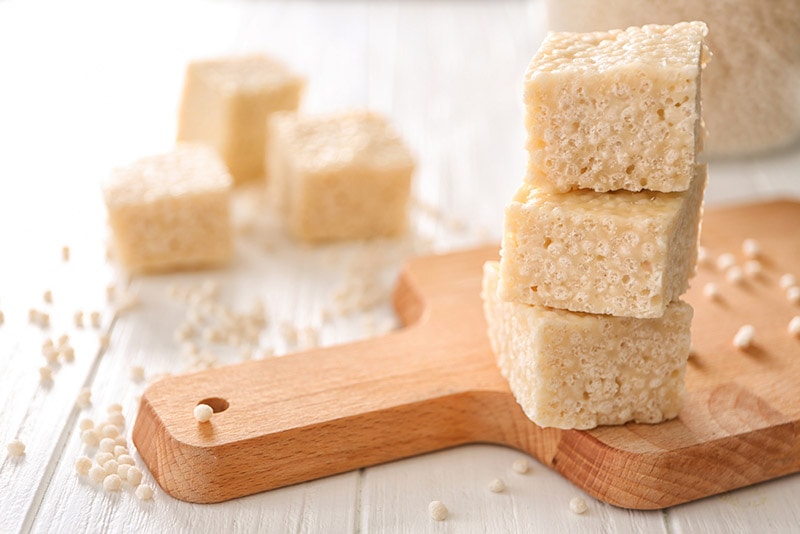
How Healthy Is It for Your Cat to Eat Rice Krispies?
Besides the food not having any great nutritional benefits, eating Rice Krispies repeatedly could lead to various health problems in your cat. Since Rice Krispies are high in carbohydrates and sugar, feeding regularly could lead to obesity and therefore diabetes.
Obesity
If they consume too many Rice Krispies, your feline could eventually become obese. Although it may seem cute to some people to see a fat cat, obesity is a serious health issue that can lead to other health problems. Obese cats also live a much shorter life than cats of a healthy weight.
Obese cats are also likely more going to experience the following health-related problems:
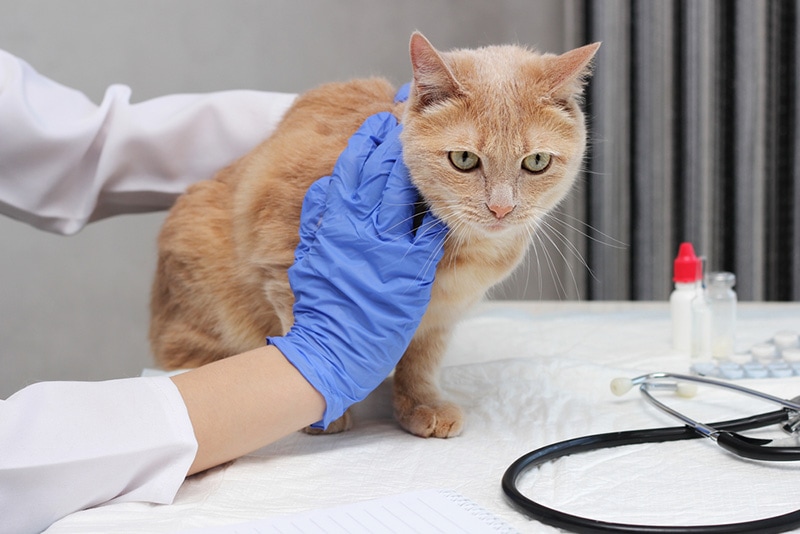
Diabetes
Obese and overweight cats are more prone to developing diabetes. Diabetes is a serious health condition that affects the pancreas; when a cat has diabetes, their pancreas is unable to regulate their blood sugar levels by producing insulin or is resistant to the effects of insulin.
Signs of diabetes in cats include:
What Should You Do If Your Cat Eats Rice Krispies?
Although Rice Krispies are not considered a healthy option for cats, a small amount of them shouldn’t affect your cat in the short term.
However, you should still avoid such situations by removing any Rice Krispies from accessible surfaces that your cat can reach. Also, ensure that you put away the cereal box after you finish eating.
If your feline consumes too many Rice Krispies and does so frequently, they will likely experience health problems.

Final Words
Cats can eat Rice Krispies as they are not toxic, but just because they can, that doesn’t mean they should. Rice Krispies are not a suitable food for cats. Eating this cereal could potentially cause health problems for cats in the long run, which is why it’s best to avoid it.
If you notice your cat eating Rice Krispies, remove them to prevent your feline from eating more. Also, remember to practice future prevention, and always clean up after you eat Rice Krispies and similar foods.
Featured Image Credit: Africa Studio, Shutterstock




